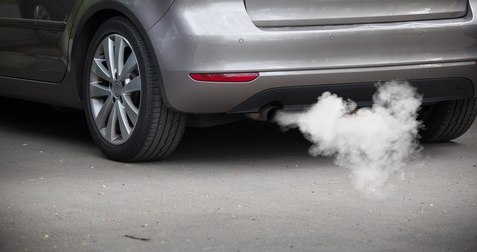Author: Admin

Our Mercedes emissions claim
Our lawyers have been working in the field of emissions litigation since it was first alleged that Volkswagen was guilty of manipulating its diesel vehicles in order to cheat emissions tests. The Volkswagen “Dieselgate” scandal was only a trigger for further allegations, with a host of other car manufacturers being subjected to accusations of emissions fraud. Mercedes was one such manufacturer, and we are looking to address any alleged wrongdoing through compensation action in our Mercedes emissions claim.
If allegations are proven, and Mercedes has failed to comply with emissions regulations, millions of affected customers could potentially be eligible to pursue compensation claims. Should the allegations be proven, Mercedes may be guilty of breaching limits in respect of harmful NOx emissions, and they may also be responsible for a huge breach of consumer rights.
As long-running supporters of the rights of consumers, we saw the Volkswagen “Dieselgate” for the huge injustice that it was. We took action quickly to initiate High Court proceedings against Volkswagen in January 2016, with the eventual litigation that followed resulting in huge numbers of people settling their case. Now, we want to use our invaluable experience and success in emissions litigation to hold other potentially guilty carmakers to account.

British Airways legal action
In 2018, British Airways was hit by a huge cyberattack which compromised significant quantities of its customer data. The incident soon became one of the most infamous data breach events ever seen in the UK, with a significant amount of press coverage damaging the airline’s reputation. Soon after the incidents were reported, we began investigating British Airways’ role in the information exposure, and we are still pursuing compensation claims for our clients in the British Airways legal action.
Despite several years of legal battle, British Airways has continued to dispute accusations of liability for the data breach. These resolute denials have been even more unbelievable considering the enforcement action taken by the ICO, the UK’s data protection regulator, against BA, which consisted of a £20m fine, one of the largest the ICO ever issued.
Whilst some claims in the British Airways data breach GLO have been settled, our claims continue as we look to pursue the highest possible compensation pay-outs for our clients. The action has been ongoing for some time now, but if you were affected by the British Airways data breach and have yet to claim, now is your chance to join our group action before time runs out if you are still able to do so.

ICO announce BA fine of £20 million
Ba fine issued: The Information Commissioner’s Office (ICO) announced that British Airways would receive a dramatically reduced fine of just £20 million.
The BA fine announcement came as a shock to many after the ICO’s proposed intention to fine was originally set at £183 million last year.
We are currently representing victims of the British Airways data breach for legal cases on a No Win, No Fee basis. If you have been affected by the breach, you could be eligible to join the group action claim now. Whilst the ICO has announced the hugely reduced BA fine, it is still vital that fight for the rights of the victims of the breach to get the justice that they deserve for the loss of control of their personal information.

The Flagship Group data breach
The Flagship Group data breach occurred on Sunday 1st November, resulting in Flagship Group’s systems and online services having to be taken offline.
The Group has since taken down more of their systems to prevent the further spread of the cyberattack as well.
The extent of the breach remains unknown but the personal details for both customers and staff may have been exposed in the Flagship group data breach. In their housing branch, Flagship Homes, they are understood to currently employ over 1,200 staff and own and manage 31,000 homes in England. Based on these figures, it could be that a significant number of people have been affected by the incident.

The Mercedes Emissions Action for compensation
The Mercedes Emissions Action for compensation is extremely important. It is designed to hold Mercedes accountable if it is established that they have been cheating emissions testing.
Right now, parent company Daimler deny that they have done anything wrong. However, Mercedes began a ‘voluntary service action’ in 2017, recalling thousands of cars for software updates relating to engine management systems and emissions. So far, around 3 million diesel vehicles are thought to have been involved.
The Group Action Lawyers are experts in bringing together Group Action Claims, where a large number of affected victims, sometimes millions, come together to bring a joint legal case forward where similar issues arise. In this case, Daimler/Mercedes is the defendant, and we want to help fight for justice for owners for it if transpires that they have been breaking the law.

Lab error leads to thousands of cervical screening tests being reviewed
A laboratory run by Pathology First, working on behalf of Basildon and Thurrock NHS Foundation Trust, are having to redo thousands of cervical screening tests for cancer after an error was discovered.
The samples affected, which were taken between April 2016 and September 2017 for women aged between 24 and 29 who had smear tests, as well as a number of women in their 60’s, are being re-screened independently.
The results held by the lab were classed as negative, but having had some 2,500 samples re-screened, 17 women have reportedly been invited for further assessments.
Continue Reading…

Aquilon nebulisers – CE mark withdrawn and supply ceased, but many have remained on the market
Despite withdrawal of the CE safety marking for Aquilon series of nebulisers, manufactured by AFP Medical, the nebulisers have still been placed on the market. A number of devices may have been sold despite the withdrawal of the CE marking, which means the safety of the product cannot be guaranteed.
CE safety certification is vital for consumer and supplier confidence in a product, and when it comes to medical products, such approval – or withdrawal, as is the case here – can be even more important.
Continue Reading…

UK government investigating the scale of harm caused by vaginal mesh implants
Our legal team have been assisting people in various situations involving harm caused by vaginal mesh implants.
The UK government review update is welcome news.
Years after the UK’s Medicines & Healthcare products Regulatory Agency (MHRA) investigated issues and decided against recalls and bans, the National Institute for Health and Clinical Excellence (NICE) has suggested the surgery should be banned, and New Zealand have become the first country in the world to put an outright ban in place.
Continue Reading…

Will the UK follow in the footsteps of the US when it comes to group actions?
Group actions in the US – or “class actions” as they’re referred to across the pond – can consist of thousands or even millions of victims claiming for similar issues. In America, there are practically always class actions going on for all sorts of things, ranging from medical and product liability suits, to employee rights cases and data breach litigation.
Its massive over there. The question now is whether the UK is set to follow suit or not in operating in a similar way to the US.
Continue Reading…

Birth defects reportedly caused by in-utero exposure to Epilepsy Drug
A drug that helps control epileptic seizures has been reportedly linked to birth defects and should not be used by pregnant women or women of child-bearing potential.
Depakote was created by French pharmaceutical drug company Sanofi back in 1967. The British equivalent, Epilim, has been available since 1973.
The drug has been used around the world and has gained regulatory approval for treatment of epilepsy, with variations of the drug introduced in 1995 for bipolar manic episodes, and in 1996 to prevent migraines. But, a generation later, it has been revealed the drug can cause severe birth defects at a significantly high percentage.
Continue Reading…